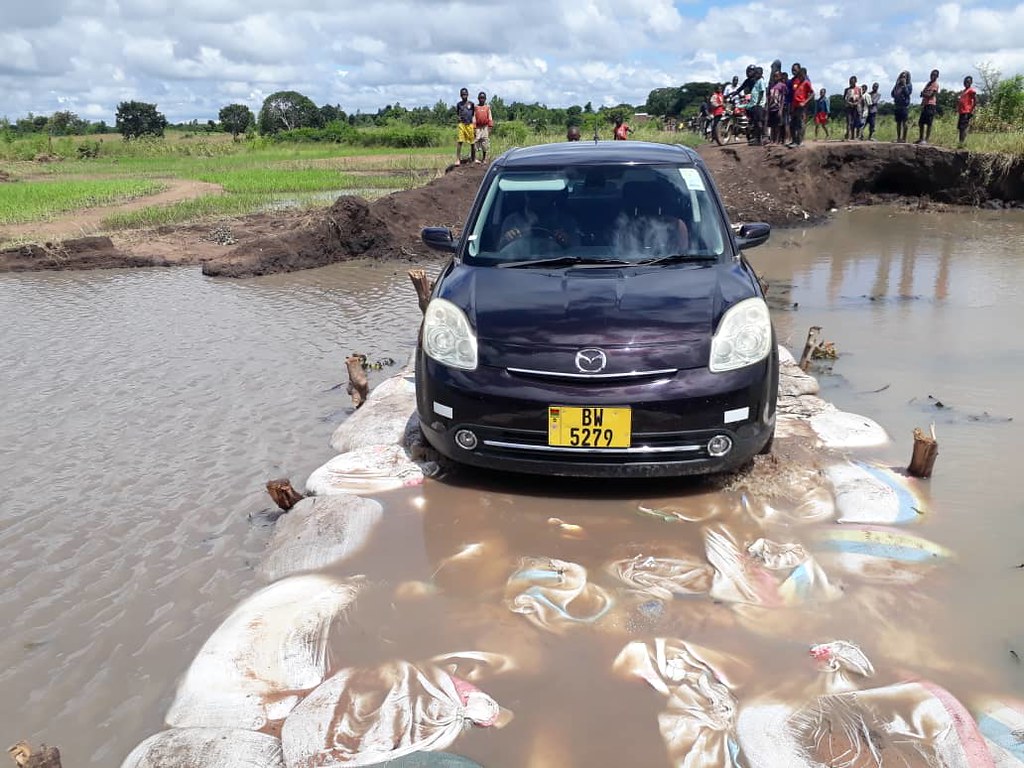My friend, you asked about the situation in Malawi after the recent storm. I can only say it is catastrophic. Cyclone Freddie has put itself in the history books as the longest running cyclone in the history of the world. At one point it is said to have had sustained winds of 160 miles per hour.
This storm formed off the coast of Australia, came up through the islands in the Pacific, gained strength as it traveled 4,000 miles across the Indian Ocean, then struck the African coast with such force it raced inland and inundated much of Southern Malawi.
The cyclone then turned back out to sea, gained strength, and the following Sunday, in the dead of night, it hurtled inland for a second time. The ground was already saturated from previous rains, and now this second onslaught dropped record rainfalls for a second time.
The resulting torrents of water took out bridges in southern Malawi, a large portion of the electrical generating capacity along the Shire River, dozens if not hundreds, of villages, crops that were nearly ready to harvest, disappeared in the rushing torrents of water, food that had remained from last year’s successful harvests, washed away, along with dozens or hundreds of people.
Wilson Tembo, with Action for Progress, sister organization of the Malawi Project, took a team south to deliver food and clothing to people, many of whom had gone more than seven days with no food. He was successful in working his way into some of the hardest hit areas, areas that larger trucks could not reach. His team unloaded the 10-ton AfP truck and put the supplies on smaller vehicles to circumvent washed-out bridges. At seeing the devastation, he reported, “this is the worst thing I have ever seen in my life.” The storm hit Blantyre, Malawi’s second largest city, and the commercial heart of Malawi. Southern Malawi is home to the largest concentration of population in the nation.
Moses Khombe Banda, a church leader in the capital city of Lilongwe writes, “The cyclone has destroyed property, homes, crops, and infrastructure, including bridges that have cut off communities that desperately need help. Whole neighborhoods which were already struggling to cope with the worst cholera outbreak in the nation’s history have been washed away. People have lost everything and have literally nothing. I have never seen this type of disaster in my life.”
Yes, my friend, in answer to your question, we need all the help we can get. God had blessed us with two trailers arriving at the Malawi warehouse just three days before the storm. One was filled with food, and the other with a large amount of clothing that had been donated by Walmart.
The AfP team has already distributed all the contents of both of those shipping containers. Yes, we have sent five more containers in a week and a half, but still more is desperately needed. The need is that great and the resources that need to reach the people in Malawi are just not available to sub-Saharan Africa. Yes, my friend you can send clothing, kitchen pots, pans and other utensils, hand tools, and school supplies, and we will get it to Malawi. You can also program a one time, or a monthly contribution at: www.malawiproject.org/donate or a check to: Malawi Project, 2421 Golfside Drive, Lebanon, Indiana 46052.
Pictured is a car moving cautiously over a group of sandbags laid down in a river to circumvent the bridge that has been washed away.

